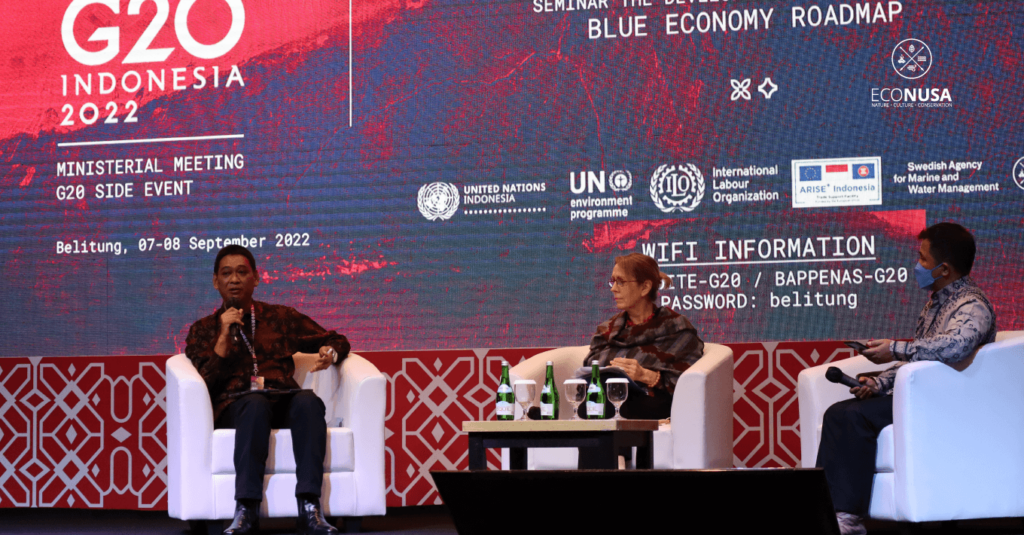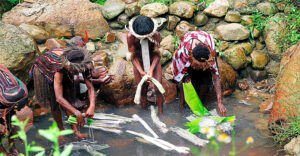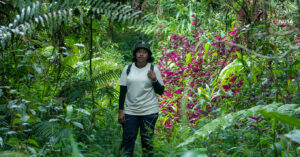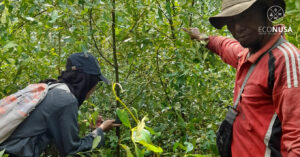
Every country wants to give prosperous life to the people through development. Development has thus far been interpreted as economic growth. Natural resources are deemed unlimited and we can take as much as we want.
“Is there any end for economic growth? There is no end for economic growth, but limit owned by our planet,” said Valerie Julliand, the Chief of United Nations for Indonesia, in a seminar on “The Development of Indonesia’s Blue Economy Roadmap”, as one of the G20 Side Events held in Belitung, Wednesday, 7 September 2022.
However, development concept with economic growth orientation has brought about environmental destruction that affects climate change. Climate change has impacted all aspects of life ranging from unpredictable climate, the rising drought, rising sea level, lost species, declining food stocks, up to the mounting health risk.
Read Also: Blue Economy Financing, An Inevitability
For the reason, Valerie said that the paradigm on development should be shifted. Economic growth is not the effectual medicine to improve human properity. “We do not want to grow more, but we want to live better,” she said.
According to Valerie, the G20 member countries could serve as the key for the shift because 20 countries in the G20 contribute 80 percent of global greenhouse gas. To date, there are 193 legitimate countries in the world. “It means that 10 percent of the countries contribute 80 percent of greenhouse gas,” she said.
EcoNusa CEO Bustar Maitar agreed with the notion. He added that the G20 countries should drastically cut down their emission production. “Without emission cut, whatever we make will be to no avail,” he said.
Read Also: Blue Economy and Customary Area Mapping ASPEKSINDO’s Crucial Agenda
As to Bustar, the transition of eco-friendly economy could be carried out. He cited an example when he worked for Greenpeace that he made advocacies for major companies to stop deforestation. The endeavor should face obstacles. However, years went by when in 2013 one of the largest pulp and paper companies eventually declared that it would stop deforestation and other companies followed it. “Transformation is a possibility,” he said.
As to Valerie, to reduce the impact of environmental degradation, the government could hardly work alone. It requires other involvement from nongovernmental organizations and the community. “All stakeholders have different roles to play,” she said.
As to her, the government has role to make a proper policy that sides with environment. Jointly with international development partner organizations, the government has responsibility to identify financial resources to ensure the policy implementation. Meanwhile, the nongovernmental organization role is to provide education as they work closely with the community. “They are among the peoples on the ground. Community could take parts if they get proper education,” said Valerie.
Read Also: EcoNusa Supports Maritime and Fisheries Research in Maluku Island
Public involvement is very crucial. The community sometimes do not realize that what they are using will give serious impact to the environment. For instance, the use of plastics. Much plastic waste will eventually end up at the sea. In 2050, the amount of sea debris is estimated to be higher than that of fish. “Now there is even waste-piled island in Pacific Ocean whose size is like France, my country. France is not a small country,” she added.
Bustar said, if public is ignorant, they will not be part of the transformation. “Indigenous people, local community could not take parts if they do not have information,” he said.
He added that the new economic policy should be integrated across sectors. Proper planning needs reinforcement from national up to local levels.
Besides, it is also necessary to provide financial access to the region and local community. As to Bustar, there are many financings from international communities in support of local communities. However, the financing is not accessible. Whereas, the indigenous community will suffer most from the climate change impacts sparked by the G20 countries. “It needs consideration on how to open financial access to the indigenous people or regional government so that they could produce something in support of economic recovery and green development,” he said.
Editor: Leo Wahyudi




